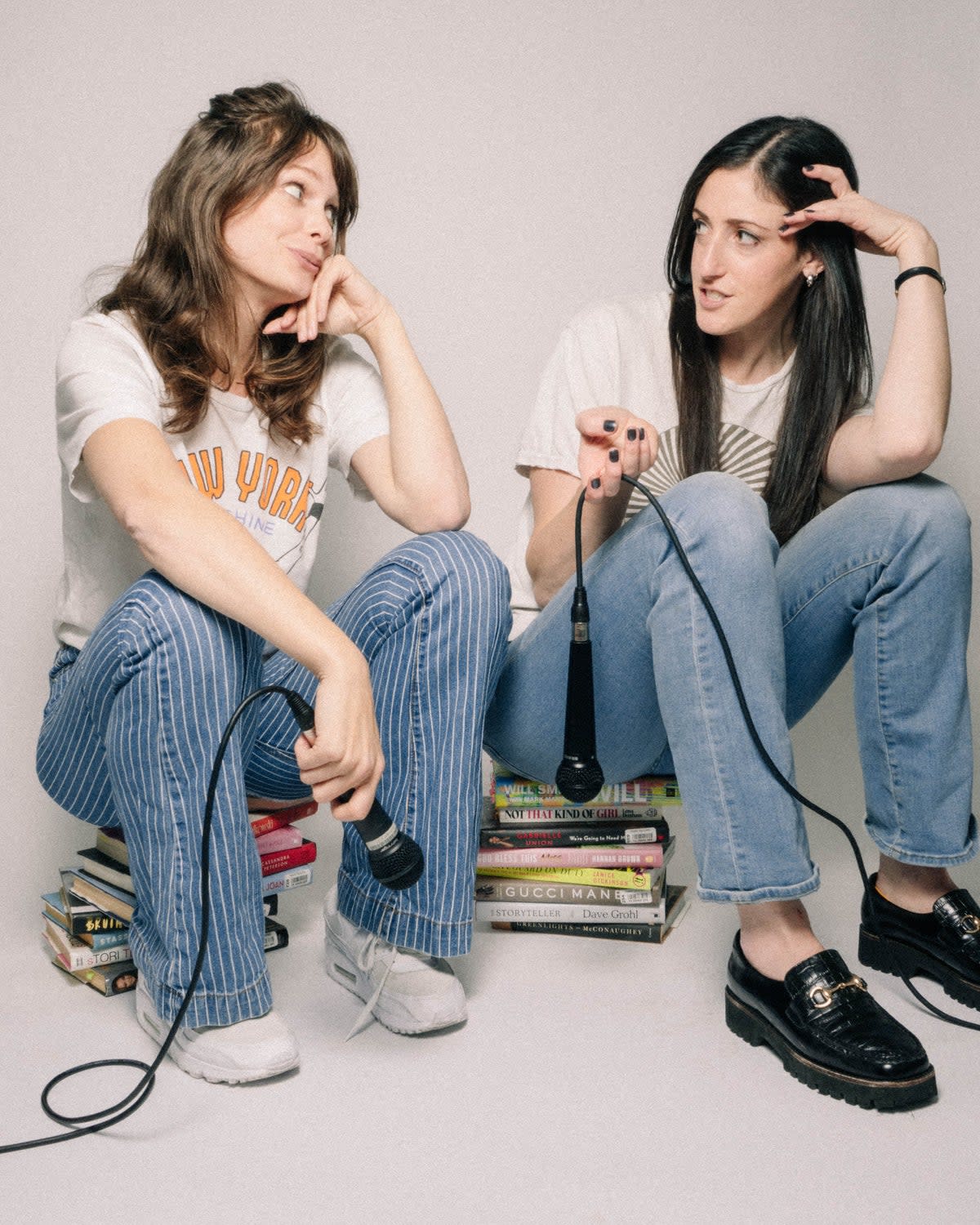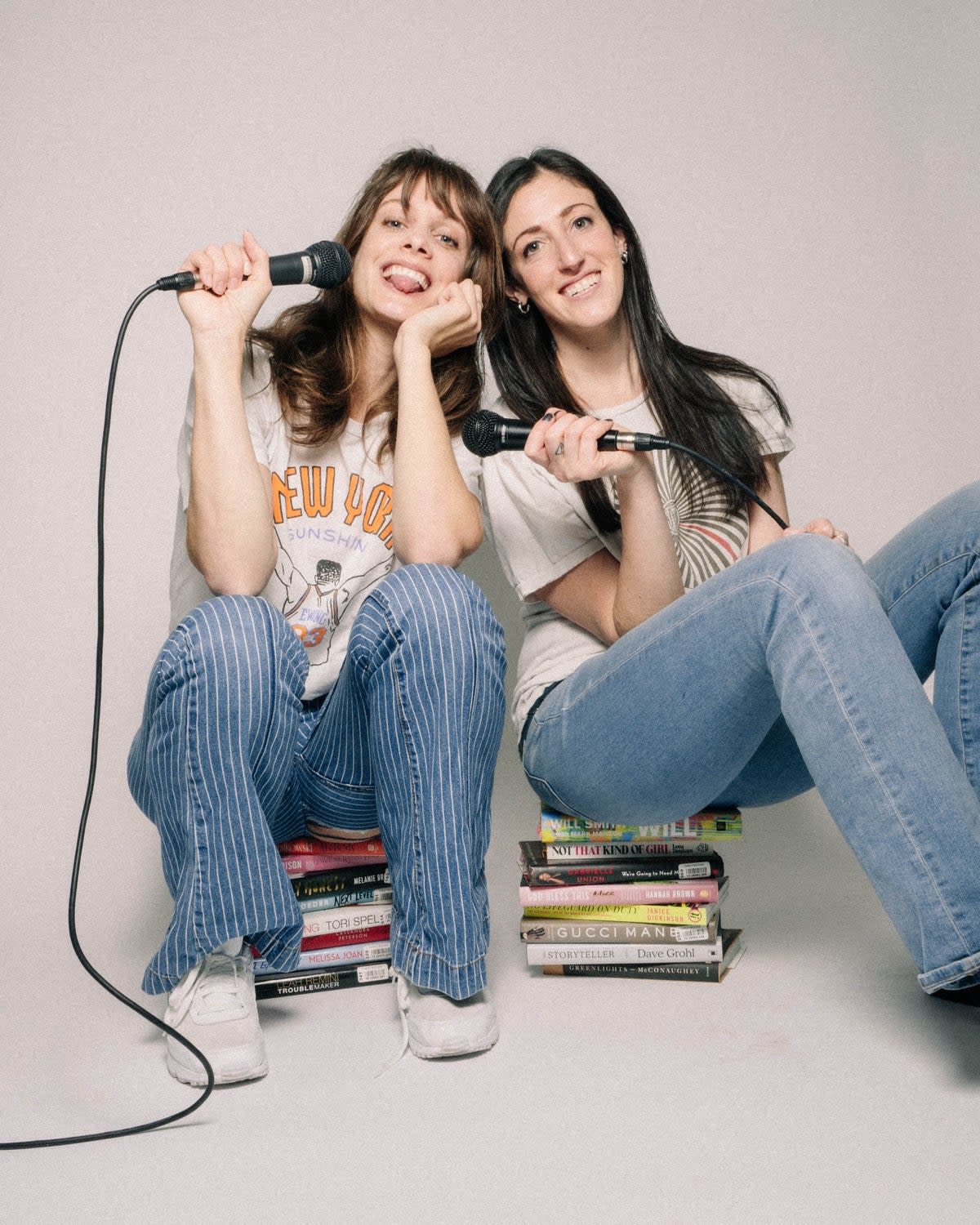In the age of celebrity memoirs, they’re reading them so you don’t have to
Nowadays, it seems everyone who has even the slightest amount of notability has published a memoir.
Whether it’s the spare to the heir of the United Kingdom, the sister of an ultra-famous pop star, a well-known former Playboy bunny or a Tumblr icon of the 2010s - it seems there’s nothing celebrities love more than the opportunity to tell the story of their life.
And thanks to the pandemic, a pause of in-person work gave those yearning to share the tales of fame and fortune the opportunity to think, reflect and write uninterrupted.
At least, that’s one theory Celebrity Memoir Book Club podcast hosts and comedians Claire Parker and Ashley Hamilton believe contributed to the post-pandemic celebrity memoir book boom.
“Everyone has always thought they have a memoir in them,” Parker, 30, told The Independent. “And this was the time to make money and do it.”
Having read and reviewed more than 115 celebrity memories, Parker and Hamilton, 31, are essentially experts in the field.
Nearly once a week for the last two and half years, the two best friends have read a celebrity memoir and then discussed it on their podcast, which has garnered a fan base of pop culture, literature and comedy-loving fiends.
Hours spent immersed in celebrity thinking have given Parker the idea that celebrities are writing more memoirs because it’s an easy way to make money and remain relevant, while Hamilton said: “I think that if someone wants to really regain attention for a minute I think a book is the new direct-to-consumer Instagram caption.”
Unlike a social media post that only stays relevant for a few hours, a book is forever. It’s a permanent way for the most gossiped-about people to reclaim attention and control the narrative.
But just because everyone is, and can do it, doesn’t mean they should.

[Memoirs Drive Me] Crazy
Parker and Hamilton know firsthand how bad some memoirs can be, as not everyone has been blessed with the talent of writing.
But the two aren’t necessarily looking for impeccable sentence structure when reading celebrity memoirs. Instead, what they’re looking for is honesty, accountability and empathy from the author.
“You have to be vulnerable,” Parker said of what makes a perfect memoir. “You have to be willing to say what has happened to you and what you have done and dig deep into why are you the way you are, admit your faults, admit the things that sucked and also we need to see that you’ve done the work to be different from them.”
She cites memoirists like Viola Davis, Molly Shannon, Jennette McCurdy, and The Bella Twins as good examples of this.
Parker added: “All of the Spice Girls did a great job at having grace for one another.” She recalled how in each Spice Girls’ memoir, the women were able to reflect on their time in the world-famous girl group and understand why Geri Halliwell, “Ginger Spice”, left.
Even though Halliwell’s move led to the eventual fallout of the Spice Girls.
Reversely, the two say Holly Madison, Jennifer Grey and Jamie Lynn Spears did not accomplish being empathetic or accountable in their memoirs.
“Holly Madison is a good example of someone who wasn’t able to take what happened to her and apply her pain to other people,” Parker said, noting that the former Playboy bunny seemingly did not extend the same grace to other Playboy bunnies as she did to herself.
Hamilton indicated Jamie Lynn Spears also came across as unempathetic, especially toward her older Britney Spears.
“[She’s] sitting there being like ‘my situation is really tough like my parents were controlling and walked me into a horrible situation but Britney wouldn’t listen and just behave,’” Hamilton said of Jamie Lynn Spears.
Hamilton also cited Alec Baldwin as someone who did not display accountability nor empathy for his actions. She recalled that he blamed the media for his strained relationship with his eldest daughter in his own memoir, Nevertheless.
But, for the ones that do a good job of reflecting on their lives and crafting an interesting story, more often than not, Parker and Hamilton believe it’s because they worked with a good ghostwriter - a controversial topic in the publishing industry.
“I think what we think makes the best book is a deeply collaborative process between a celebrity and a ghostwriter where you’re willing to be vulnerable, when you’re willing to really be part of the process, but you’re not writing the book,” Hamilton said.
They use Prince Harry’s ghost-written memoir Spare as a good example of a book that’s “well-written” and “very readable”.
“The worst books are ones where a celebrity just fully sits down and tries to write a book because they don’t know what stories are important, they don’t know how to organise their thoughts,” Hamilton said.
Parker and Hamilton argue that using a ghostwriter can make a book easier to read, more enjoyable and benefit the celebrity’s intentions for releasing a memoir.
Celebrities… take note.
[Memoirs] Against The World
Every celebrity has a different goal when releasing a memoir.
For some, maybe like Paris Hilton, it could be to share a different side of themselves - one that the world, and their fans, aren’t familiar with.
“There’s something about a book where you’re taking whatever you did wrong last week and putting it in the context of your horrible childhood, what your intentions were, times people were mean to you, what you hope for the future,” Parker said.
Hilton, who was once known as a flighty, materialistic, wealthy heiress from years of playing a hyper-exaggerated version of herself, revealed her authentic and strong self in her memoir Paris: The Memoir.
“It’s a great rebranding tool,” Parker added.
It’s what entices even young memoirists like Madison Beer to release a book explaining their traumas to help others understand them - despite having lived only 24 years thus far.
Or someone like Kelly Ripa to release a book of stories and casually slide in that her famous co-host of many years was actually not that nice - despite maybe what others have said.
It’s why more celebrities like Elliot Page and Barbara Streisand are joining the memoirist community. It’s why Prince Harry chose to release a book revealing the details of growing up royal rather than conduct another sit-down interview. It’s why every celebrity seems to be releasing a memoir.
“There’s a gravitas that speaks to their ego. It doesn’t matter if you’re Tyler Cameron from The Bachelor, everybody would like to be a New York Times bestseller,” Parker claimed.
Gimme more... [Memoirs]
Coincidentally, somehow Parker and Hamilton managed to predict an influx of celebrity memoirs when they got the idea for their podcast in January 2020 - before the pandemic was a blip on most people’s radar.
And it all started with Britney Spears.
Before there was Celebrity Memoir Book Club, there were two other attempts by Parker and Hamilton to carve out a niche in comedy podcasting, starting with Hold On One Second We’re Talking About Britney Spears, which ended as rumours were bubbling that Spears was being held in a controlling conservatorship against her wish.
“The conservatorship information came to light and we felt really uncomfortable speculating about what was going on with Britney Spears,” Hamilton recalled.
But the idea of a pop culture-comedy podcast still intrigued the two, and so they began to think of ways to analyse pop culture figures without bullying or speculation - one where they could take words directly from the source.
Introducing memoirs, or “a way to discuss people without bullying somebody,” Parker explained.
For the comedians, reading a memoir allowed them to speak as “experts” on a celebrity without having to do copious amounts of research because, in theory, the memoirist is sharing everything you need to know about them.
Hamilton added: “You can analyse and criticse or support what they’re saying because this is what they want us to know.”
The pair call it the “ethical consumption of pop culture”.
They kicked off their podcast in September 2020 with Jessica Simpson’s memoir Open Book, after delaying their premiere by several months due to the pandemic.
In the first few weeks, they racked up a few thousand listeners, a good sign compared to their two failed podcasts.
They were also confident in their idea, with Parker recalling they both “had a good feeling” the concept would do well.

“It felt iterative, consistent but not exhaustive,” Parker said. “I think a lot of the problems people have with podcasts sometimes is you have a topic and you kind of run out of things to say.”
But letting each memoirist drive the conversation allows Parker and Hamilton to touch on a number of different types of topics.
Some weeks, the two discuss heavier matters like substance abuse disorder, when books like Matthew Perry’s Friends, Lovers, and the Big Terrible Thing raise the topic. Other weeks, it’s a light-hearted discussion on the mico-cultural significance of someone like Danielle Bernstein with her memoir This is Not a Fashion Story.
Once, it was an out-of-pocket historical financial moment when they read Stephanie Madoff Mack’s The End of Normal.
The beauty of the podcast is the flexibility it allows Parker and Hamilton to have each week - something critical to the survival of a podcast, which just like a celebrity memoir, everyone seems to have.
